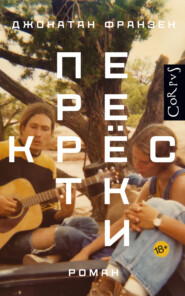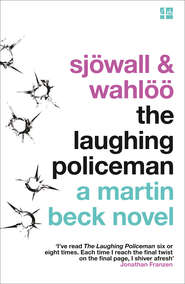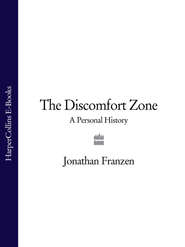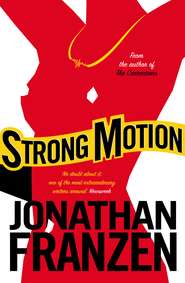По всем вопросам обращайтесь на: info@litportal.ru
(©) 2003-2024.
✖
The Twenty-Seventh City
Автор
Год написания книги
2018
Настройки чтения
Размер шрифта
Высота строк
Поля
“Of course, it’s also an instrument of lethal force,” she continued, leaning back in her office chair.
Jammu’s frank, gutsy style of law-enforcement management has earned a reputation that is literally world-wide. When the search for a replacement for former Chief William O’Connell ended in its deadlock of opposing factions, Jammu’s name was among the first mentioned as a compromise candidate. And despite the fact that she had no previous law-enforcement experience in the U.S., the Police Board confirmed her appointment less than a week after she arrived in St. Louis for interviews.
To many here, it came as a surprise that this Indian woman met the citizenship requirements necessary for her job. But Jammu, who was born in Los Angeles and whose father was American, says she went to great lengths to preserve her citizenship. Since she was a child she has dreamed of settling in America.
“I’m terribly patriotic,” she said with a smile. “New residents, like myself, often are. I’m looking forward to spending many years in St. Louis. I’m here to stay.”
Jammu speaks with slightly British intonations and striking clarity of thought. With her fine features and delicate build, she could hardly be less like the stereotype of the gruff, male American police chief. But her record gives an altogether different impression.
Within five years of entering the Indian Police Service in 1969, she became a deputy to the Inspector-General of Police in Maharashtra Province. Five years later, at the astonishing age of 31, she was named Commissioner of the Bombay police. At 35, she is both the youngest police chief in modern St. Louis history and the first woman to hold the post.
Before joining the Indian police she received a B.A. in electrical science from the University of Srinagar in Kashmir. She also did three semesters of postgraduate work in economics at the University of Chicago.
“I’ve worked hard,” she said. “I’ve had plenty of luck, too. I doubt I’d have this job had I not received good press from Project Poori. But of course the real problem was always my sex. It wasn’t easy to buck five millennia of sexual discrimination.
“Until I became a superintendent I routinely dressed as a man,” Jammu reminisced.
Apparently, experiences like this played a key role in the Commissioners’ selection of Jammu. In a city still struggling to overcome its image as a “loser,” the Board’s unorthodox choice makes good public-relations sense. St. Louis is now the largest U.S. city to have a female police chief.
Nelson A. Nelson, president of the Board, believes St. Louis should take credit for its leading role in making city government accessible to women. “It’s affirmative action in the truest sense of the word,” he commented.
Jammu, however, appeared to discount the issue. “Yes, I’m a woman, all right,” she said with a smile.
As one of her primary goals, she names making city streets safer. While not offering to comment on the performances of past chiefs in this area, she did say that she was working closely with City Hall to devise a comprehensive plan for fighting street crime.
“The city needs a new lease on life, a fundamental shake-up. If we can get the business community and citizens’ groups to aid us—if we can make people see that this is a regional problem – I’m convinced that in a very short time we can make the streets safe again,” she said.
Chief Jammu is not afraid of making her ambitions known. One might venture to guess that she will meet with jealous opposition in whatever she attempts. But her accomplishments in India show her to be a formidable adversary, and a political figure well worth keeping an eye on.
“Project Poori is a good illustration,” she pointed out. “We applied a new set of terms to a situation that appeared hopeless. We set up bazaars outside every station house. It improved our public image, and it improved morale. For the first time in decades we had no trouble attracting well-qualified recruits. Indian police have a reputation for corruption and brutality which is largely due to the inability to recruit responsible, well-educated constables. Project Poori began to change things.”
Some of Jammu’s critics have voiced fears that a police chief accustomed to the more authoritarian atmosphere of India might be insensitive to civil-rights issues in St. Louis. Charles Grady, spokesman for the local chapter of the American Civil Liberties Union, has gone even further, urging that Jammu be dismissed before a “constitutional disaster” occurs.
Jammu strenuously rejects these criticisms. “I’ve been quite surprised by the reactions of the liberal community here,” she said.
“Their concern arises, I believe, from an abiding distrust of the Third World in general. They overlook the fact that India’s system of government has been deeply influenced by Western ideals, particularly, of course, by the British. They fail to distinguish between the Indian police rank-and-file, and the national officer corps, of which I was a member.
“We were trained in the British tradition of civil service. Standards were extremely high. We were continually torn between sticking up for our troops and sticking up for our ideals. My critics overlook the fact that it was this very conflict which made a position in the United States attractive to me.
“In fact, what strikes me now about Project Poori is how American our approach was. Into a clogged and bankrupt economy we injected a harsh dose of free enterprise. Soon hoarders found their goods worth half of what they’d paid for them. Profiteers went begging for customers. On a small scale, we achieved a genuine Wirtschaftswunder,” Jammu recalled, referring to postwar Germany’s “economic miracle.”
Can she work similar wonders in St. Louis? Upon taking office, other chiefs in recent memory have stressed loyalty, training, and technical advances. Jammu sees the crucial factors as innovation, hard work, and confidence.
“For too long,” she said, “our officers have accepted the idea that their mission is merely to ensure that St. Louis deteriorates in the most orderly possible way.
“This has done wonders for morale,” she said sarcastically.
It was perhaps inevitable that many of the officers here, especially the older ones, would react to Jammu’s appointment with skepticism. But attitudes have already begun to change. The sentiment most often voiced in the precinct houses these days seems to be: “She’s OK.”
Five minutes into Joseph Feig’s interview, Jammu had smelled sweat from her underarms, a mildewy feral stink. Feig had a nose; he didn’t need a polygraph.
“Isn’t Jammu the name of a city in Kashmir?” he asked.
“It’s the capital during the winter.”
“I see.” He looked at her fixedly for several long seconds. Then he asked: “What’s it like switching countries like this in the middle of your life?”
“I’m terribly patriotic,” she said, with a smile. She was surprised he hadn’t pursued the question of her past. These profiles were a rite of passage in St. Louis, and Feig, a senior editor, was generally acknowledged to be the dean of local feature writing. When he first walked in the door, in his wrinkled tweed jacket and his week-old beard, fierce and gray, he’d looked so investigative that Jammu had actually blushed. She’d imagined the worst:
FEIG: Colonel Jammu, you claim you wanted to escape the violence of Indian society, the personal and caste conflicts, but the fact remains that you did spend fifteen years in the leadership of a force whose brutality is notorious. We aren’t stupid, Colonel. We’ve heard about India. The hammered elbows, the tooth extractions, the rifle rapes. The candles, the acid, the lathis, the cattle prods—
JAMMU: The mess was generally cleaned up before I got there.
FEIG: Colonel Jammu, given Mrs. Gandhi’s almost obsessive distrust of her subordinates and given your own central involvement in Project Poori, I have to wonder if you’re at all related to the Prime Minister. I don’t see how else a woman could have made commissioner, especially a woman with an American father—
JAMMU: It isn’t clear to me what difference it makes to St. Louis if I’m related to certain people in India.
But the article was in print now, definitive and unretractable. The windows of Jammu’s office were beginning to fill with light. She rested her chin on her hands and let the print below her wander out of focus. She was happy with the article but worried about Feig. How could someone so obviously intelligent be a mere transcriber of platitudes? It seemed impossible. Perhaps he was just paying out the rope, “giving” her an interview like a final cigarette at dawn, while behind her back he marshalled his facts into an efficient, deadly squad …
Her head was sinking towards her desk. She reached for the lamp switch and slumped, with a dry splash, onto the newspaper. She closed her eyes and immediately began to dream. In the dream, Joseph Feig was her father. He was interviewing her. He smiled as she spoke of her triumphs, the delicious aftertaste of lies that people fell for, the escape from airless India. In his eyes she read a sad, shared awareness of the world’s credulity. “You’re a scrappy girl,” he said. She leaned over her desk and nestled her head in the crook of her elbow, thinking: scrappy girl. Then she heard her interviewer tiptoe around behind her chair. She reached around to feel his leg, but her hands swung through empty air. His bristly face pushed aside her hair and brushed her neck. His tongue fell out of his mouth. Heavy, warm, doughlike, it lay against her skin.
She woke up with a shudder.
Jammu’s father had been killed in 1974 when a helicopter carrying foreign journalists and some South Vietnamese military personnel was downed near the Cambodian border by a communist rocket. A second helicopter captured the crash on film before escaping to Saigon. Jammu and her mother had learned the news from the Paris edition of the Herald Tribune, their sole link with the man. It was from a week-old Herald Tribune that Jammu, more than a decade earlier, had first learned his name. Ever since she’d been old enough to ask, her mother had evaded her questions, dismissing the subject brusquely whenever Jammu tried to bring it up. Then, in the spring before she entered the university, her mother spoke. They were at the breakfast table on the veranda, Maman with her Herald Tribune and Jammu with her algebra book. Her mother nudged the paper across the table and scraped a long fingernail across an article at the bottom of the front page:
TENSION MOUNTS ON
SINO-INDIAN BORDER
Peter B. Clancy
Jammu read a few paragraphs, but she didn’t know why. She looked up for an explanation.
“That’s your father.”
The tone was typically matter-of-fact. Maman spoke only English to Jammu, and spoke it with a perverse disdain, as if she didn’t accept the language’s word for anything. Jammu scanned the article again. Countercharges. Secessionist. Bleak vistas. Peter B. Clancy. “A reporter?” she said.
“Mm.”
Her mother wouldn’t say what he was like. Having acknowledged his existence, she proceeded to ridicule her daughter’s curiosity. There was no story to tell, she said. They’d met in Kashmir. They’d left the country and spent two years in Los Angeles, where Clancy took a degree of some sort. Then Maman had returned, alone, to Bombay, not Srinagar, with her baby, and had lived there ever since. Nowhere in this obituary narrative did she suggest that Clancy was anything more than a second set of luggage. Jammu got the idea—things hadn’t worked out. It didn’t matter, either. The city was full of bastards, and Maman, in any case, was oblivious to public opinion. The newspapers called her the “laughing jackal of real estate.” Laughing all the way to the bank, they meant. She was a speculator and slumlord, one of the more successful in a town of speculation and slums.
Jammu selected two Tylenols and a Dexedrine from her top drawer and swallowed them with coffee dregs. She’d finished the night’s reading sooner than she’d planned. It was only 6:30. In Bombay it was 5:00 in the evening—Indian time was a quaint half hour out of step with the rest of the world—and Maman was probably at home, upstairs, pouring her first drink. Jammu reached for the phone, got the international operator, and gave her the numbers.
The connection hissed with the difficult spanning of half a world. Of course in India even local calls hissed this way. Maman answered.
“It’s me,” Jammu said.
“Oh, hello.”
















